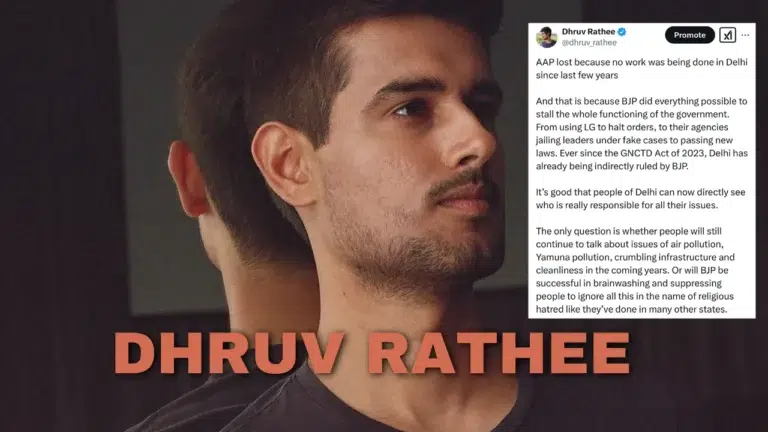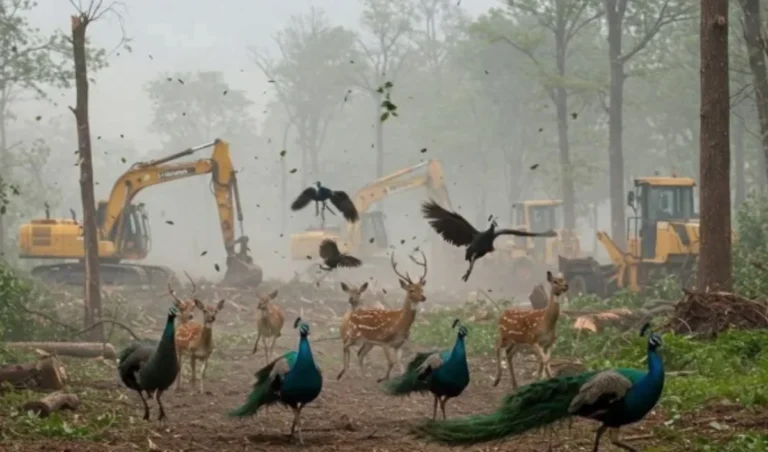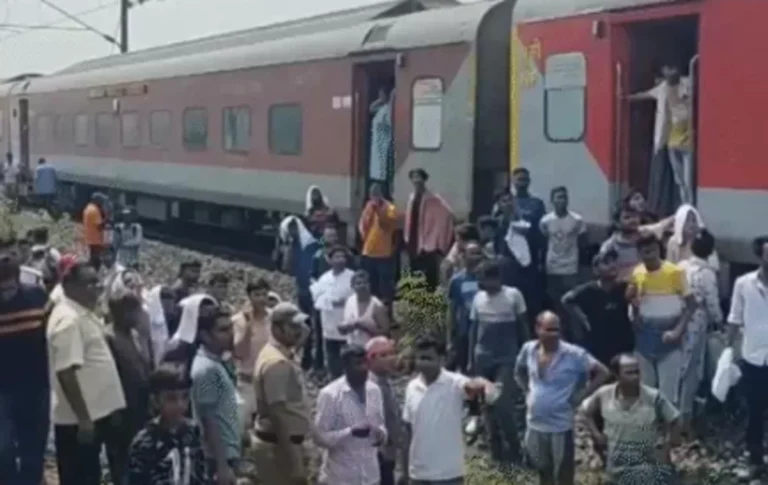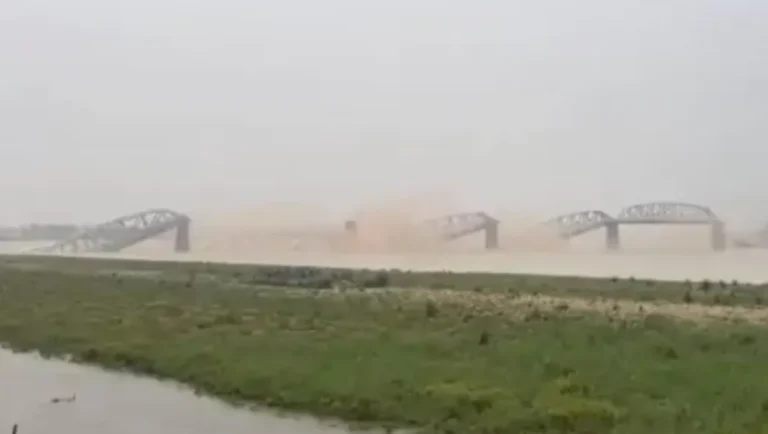2025 Delhi Assembly Election: BJP’s landslide victory ends AAP’s rule But will this really change Delhi politics? The political scenario in India’s capital has changed drastically after the Bharatiya Janata Party (BJP) registered a massive win in the Delhi Assembly Election 2025. It brought an end to the five-year rule of the Aam Aadmi Party (AAP). This has been the talk of the town among political analysts and has been attracting attention from social media influencers as well. Dhruv Rathee, a popular YouTuber known for his political commentary, shares his views on this.
The Election Outcome
BJP’s spectacular win in Delhi after a long hiatus has given it control over a large number of seats. The BJP has regained power in Delhi for the first time in 27 years, reflecting a clear shift in voter preferences. The defeat of AAP led by Arvind Kejriwal, who has been a key figure in Delhi’s politics, was a surprise for many, given the party’s past dominance in the region.
Dhruv Rathee’s Reaction
Dhruv Rathee, who is very critical of the BJP, did not keep quiet about it either. In a series of posts on X as well as a video on his YouTube channel, Dhruv Rathee explains why AAP lost the election. The defeat, he says, is the result of many factors including what he calls the BJP’s calculated efforts to sabotage AAP’s governance. Dhruv Rathee cites the party’s use of the Lieutenant Governor to suspend administrative orders, imprisonment of AAP leaders under ‘fake’ cases, and new laws that have indirectly controlled Delhi’s administration since the GNCTD Act 2023.
Dhruv Rathee’s post wasn’t just about pointing fingers, though. It also posed questions about Delhi’s future — whether people would continue to focus on issues like air and Yamuna pollution, infrastructure, and cleanliness, or whether the BJP would begin to focus on religious and ideological narratives, something that Dhruv Rathee has been critical of in the past.
The Broader Implications
The election results and Dhruv Rathee reactions point towards several broader implications:
- Governance and Administration: Rathee’s allegation that the BJP indirectly runs Delhi through administrative bottlenecks could define public debate on governance. It challenges state autonomy and the role of central appointees like the lieutenant governor.
- Political Influence of Social Media: But even if Rathee’s videos receive a lot of hate, they show that social media influencers are increasingly affecting political debate and that with millions of views, videos posted on the internet can have a more powerful effect on public opinion than traditional media.
- Future Political Landscape: But the BJP’s victory also raises questions about how it will govern Delhi. Will it continue AAP’s welfare programmes or bring about a major policy shift? Rathee’s critique suggests that the public will keep a close watch on how the BJP addresses Delhi’s pressing problems.
- Opposition Strategy: For AAP and other opposition parties, this defeat might be an opportunity for introspection. Dhruv Rathee’s remarks could bring about a re-think in the strategy, with greater focus on mobilising the grassroots and countering what they see as a tactical political move by the BJP.
What’s Next for Delhi?
Looking ahead, several questions remain:
- Policy Implementation: How will BJP tackle Delhi’s challenges? The BJP’s test will be in governance — continuing or improving on initiatives such as education, health and environment policies.
- Public Accountability: Rathee and others are keeping a close watch on the government and have called for greater transparency and accountability. Rathee’s comments about ‘gundagardi’ (hooliganism) in the election process would keep the new government on its toes.
- Political Dynamics: The BJP and the opposition parties in Delhi must interact. Will it lead to co-operation or continue to be political sworn enemies?
- Voter Sentiment: BJP’s win may reflect a change in voter sentiment — driven perhaps by nationalist fervor, anti-incumbency, or dissatisfaction with the AAP’s performance — that will be crucial to understand for future electoral calculations.
Dhruv Rathee’s take on BJP’s victory in Delhi is more than just election analysis — it is a commentary on Indian politics. It highlights the narrative war in the digital age, the challenges of urban governance, and the changing relationship between parties and voters. As Delhi gets a new government, Rathee and the public will watch closely to see what comes next. This election’s narrative will likely influence political discourse and strategy for years in India’s most politically charged city.




